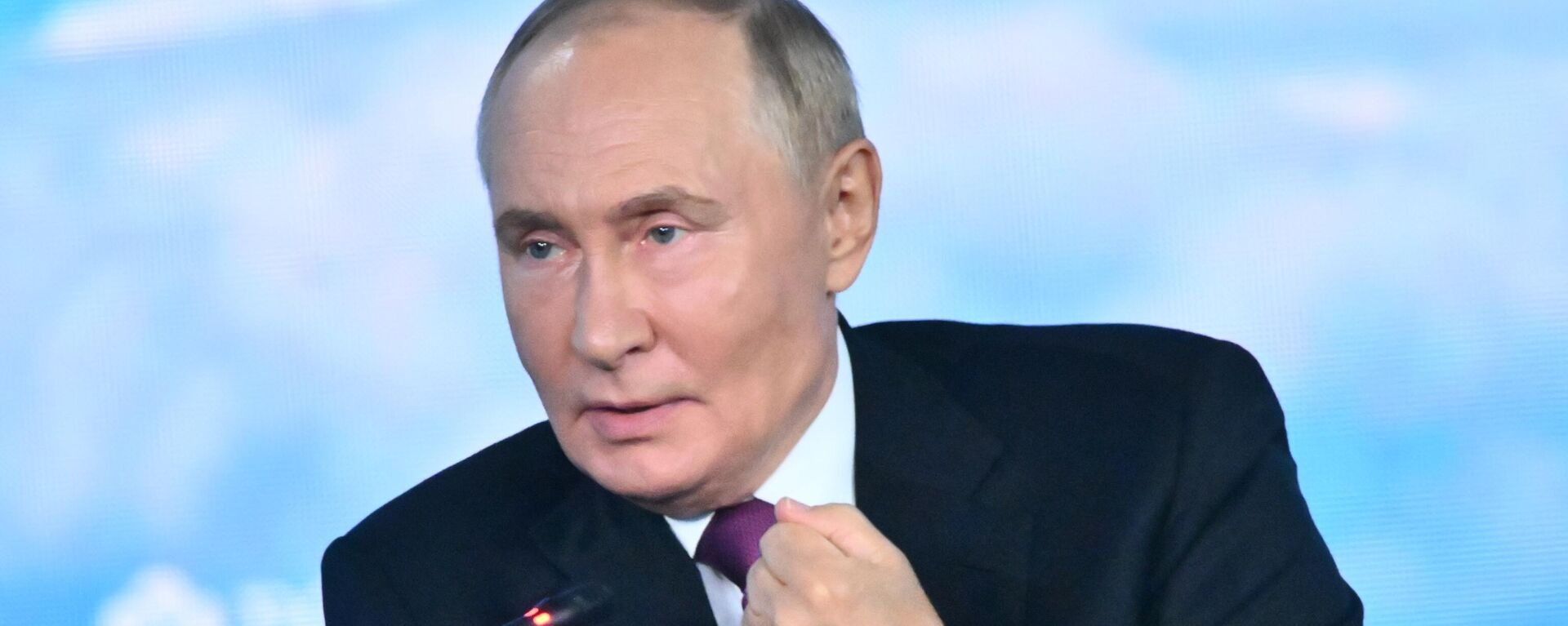https://sputnikglobe.com/20240920/use-of-national-currencies-in-brics-already-supersedes-dollar---chamber-of-commerce-1120216867.html
Goodbye Greenback: BRICS Says Group’s Use of National Currencies Leaving Dollar in Dust
Goodbye Greenback: BRICS Says Group’s Use of National Currencies Leaving Dollar in Dust
Sputnik International
The use of national currencies in transactions between BRICS members has already overtaken the dollar, Sameep Shastri, the vice chairman of the BRICS Chamber of Commerce and Industry, told Sputnik.
2024-09-20T05:25+0000
2024-09-20T05:25+0000
2024-09-20T10:33+0000
moscow
china
brics
russia
india
currency
national currency
economy
https://cdn1.img.sputnikglobe.com/img/07e7/09/11/1113436948_0:195:2950:1854_1920x0_80_0_0_9487723bdb0ddf472d20fa1850268127.jpg
"I already feel that it's already overtaken because the countries are very happy doing trade [using their currencies], because when you look at a very simple micro level, I buy X product from Russia, pay a dollar change rate in India, and then provide the service back, pay the dollar change. So there's an extra cost behind it, which is now eradicated when I directly [pay] with ruble or with rupee," Shastri said on the sidelines of the BRICS Urban Future Forum in Moscow. The vice chairman also addressed the issue of a BRICS currency, suggesting that BRICS is taking it slow, but when the countries reach a certain level of economic parity, this is when such a currency could float. "And now we've already started talking about accepting some digital currencies, rules and regulations are being made in these nations, Russia, China, India, the UAE, they are all into cryptocurrencies, and I feel that is also has a fair share of future, because they are not bounded by any particular country as such. But then, certain rules and regulations have to be in place for utilization of such funds, because we can, we know, and we are aware that, you know, those funds can be misutilized," Shastri added. BRICS foreign ministers in June stressed the importance of increased use of national currencies in trade and financial transactions among BRICS members.Russia’s economic growth under sanctions demonstrates that the BRICS nations are not dependent on the West, Sameep Shastri said.The vice chairman observed a similar effect from the Make in India initiative launched by Prime Minister Narendra Modi.Russia has repeatedly said that it will cope with the sanctions pressure that the West has been exerting on Russia for several years and which has continued to increase. Moscow noted that the West lacked the courage to admit the failure of sanctions against Russia. In the West, opinions have repeatedly been voiced that anti-Russia sanctions are ineffective.
https://sputnikglobe.com/20240905/use-of-national-currencies-in-russia-brics-settlements-reaches-60---putin-1120033256.html
moscow
china
russia
Sputnik International
feedback@sputniknews.com
+74956456601
MIA „Rossiya Segodnya“
2024
Sputnik International
feedback@sputniknews.com
+74956456601
MIA „Rossiya Segodnya“
News
en_EN
Sputnik International
feedback@sputniknews.com
+74956456601
MIA „Rossiya Segodnya“
Sputnik International
feedback@sputniknews.com
+74956456601
MIA „Rossiya Segodnya“
national currencies, brics members, brics chamber of commerce and industry
national currencies, brics members, brics chamber of commerce and industry
Goodbye Greenback: BRICS Says Group’s Use of National Currencies Leaving Dollar in Dust
05:25 GMT 20.09.2024 (Updated: 10:33 GMT 20.09.2024) MOSCOW (Sputnik) - The use of national currencies in transactions between BRICS members has already overtaken the dollar, Sameep Shastri, the vice chairman of the BRICS Chamber of Commerce and Industry, told Sputnik.
"I already feel that it's already overtaken because the countries are very happy doing trade [using their currencies], because when you look at a very simple micro level, I buy X product from Russia, pay a dollar change rate in India, and then provide the service back, pay the dollar change. So there's an extra cost behind it, which is now eradicated when I directly [pay] with ruble or with rupee," Shastri said on the sidelines of the BRICS Urban Future Forum in Moscow.
The vice chairman also addressed the issue of a
BRICS currency, suggesting that BRICS is taking it slow, but when the countries reach a certain level of economic parity, this is when such a currency could float.

5 September 2024, 08:06 GMT
"And now we've already started talking about accepting some digital currencies, rules and regulations are being made in these nations, Russia, China, India, the UAE, they are all into cryptocurrencies, and I feel that is also has a fair share of future, because they are not bounded by any particular country as such. But then, certain rules and regulations have to be in place for utilization of such funds, because we can, we know, and we are aware that, you know, those funds can be misutilized," Shastri added.
BRICS foreign ministers in June stressed the importance of increased use of national currencies in trade and financial transactions among BRICS members.
Russia’s economic growth under sanctions demonstrates that the BRICS nations are not dependent on the West, Sameep Shastri said.
"I always give the example lately [about] the cost of sanctions. Russia showed a very big move to the BRICS nations. We are not dependent on the Western powers or their brands or their services. We could create it on our own. And positive impact of 2% in the Russian economy proves that companies here are doing it," Shastri said.
The vice chairman observed a similar effect from the Make in India initiative launched by Prime Minister Narendra Modi.
"India is growing rapidly. We have become the fifth largest economy. The similar thought process is for all BRICS+ nations," Shastri added.
Russia has repeatedly said that it will cope with the sanctions pressure that the West has been exerting on Russia for several years and which has continued to increase. Moscow noted that the West lacked the courage to admit the failure of sanctions against Russia. In the West, opinions have repeatedly been voiced that anti-Russia sanctions are ineffective.



